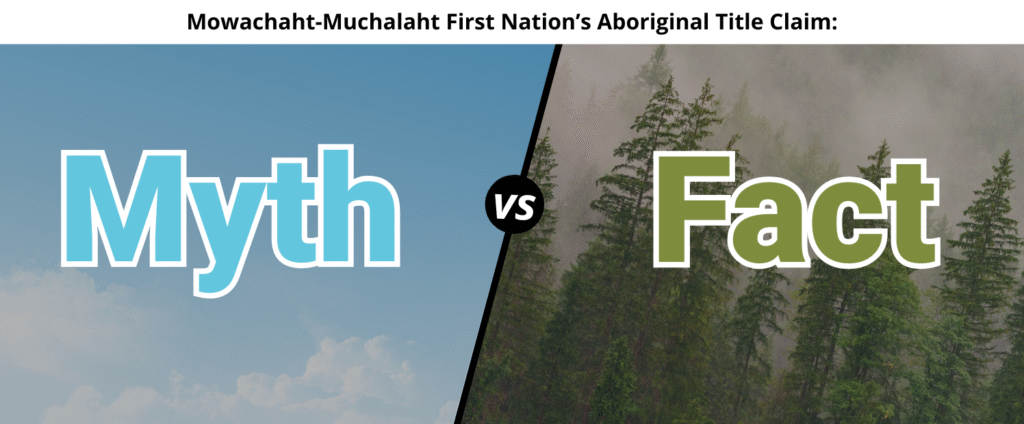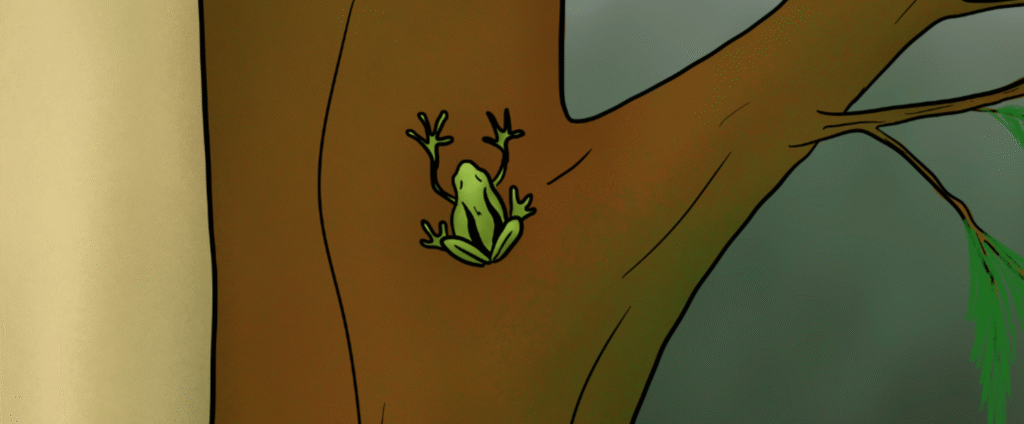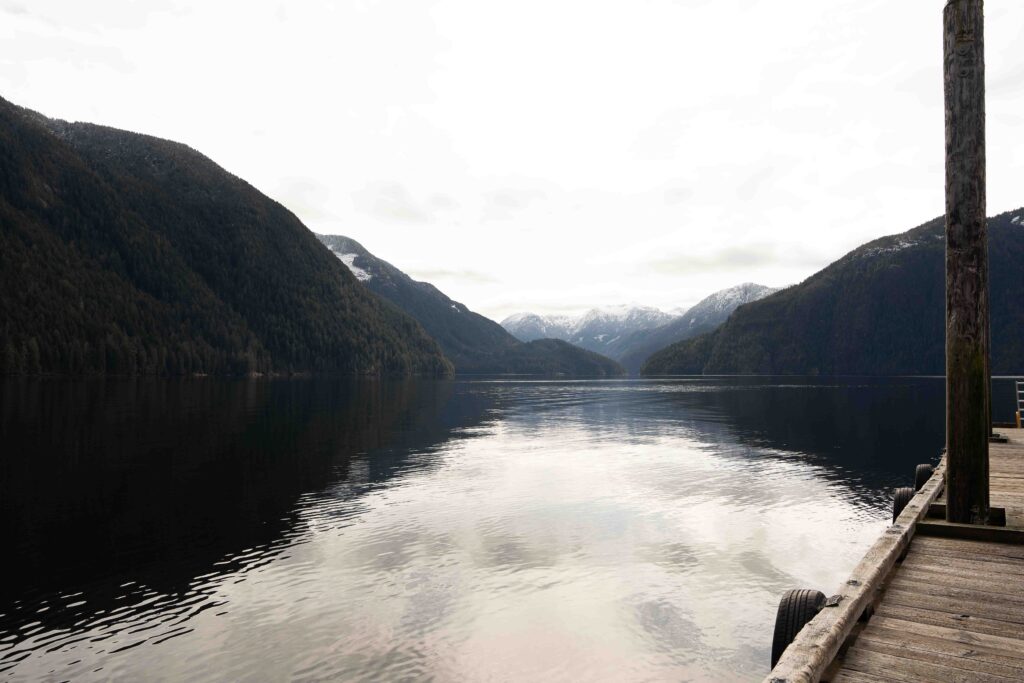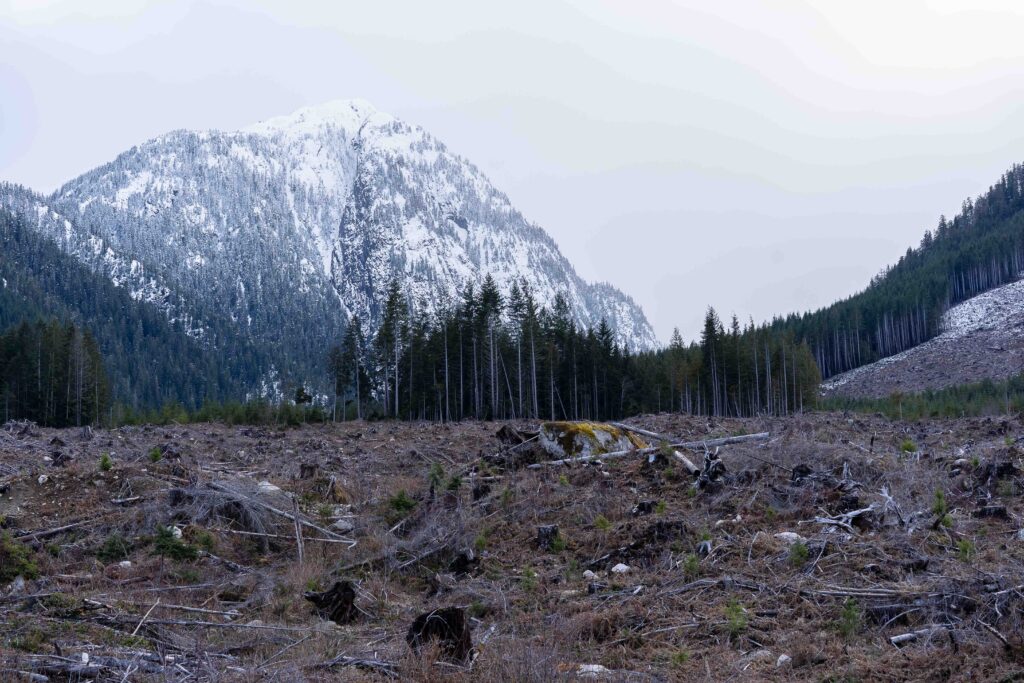Campaign Overview
The Mowachaht-Muchalaht First Nation (MMFN) is located on the west coast of Vancouver Island with a deep connection to the land and sea. Vast fjords host salmon, whales, and coastal wolves, with forests rising into the mystical alpine mountains of the Vancouver Island Alps. All of it has been stewarded by MMFN for thousands of years, a people who depend on the ocean, rivers, and forests to sustain their way of life. Their story is one of resilience, culture, and a commitment to the betterment of our lands, waters, and community for generations to come.
However, through Crown exercises of power and decision-making, MMFN’s territory has been sold and stripped of fish, wildlife, minerals, and trees, without consent from MMFN. The Province of B.C. and industry have made a huge profit with very little benefit to MMFN, who is left with all the environmental impacts from the actions of those industries, fighting to maintain their way of life and their right to make decisions about their territory.
MMFN’s territory is covered in forestry tenures authorized by B.C. that have caused devastating cultural, spiritual, environmental, and economic harm to MMFN, including the removal of monumental cedar and the destruction of culturally modified trees, as well as significant harm to habitat. The only areas not covered by Tree Farm Licenses or Timber Supply Areas are those recognized as Indian reserves or provincial parks.
While resource extraction has negatively impacted MMFN’s territory and the ecosystem, there is still ecological and cultural wealth in this territory that is worth protecting. MMFN is dedicated to fostering healthy, collaborative, and constructive relationships with the non-Indigenous community through authentic and open communication and dialogue that is transparent and meaningful, as the current system of Crown-led resource extraction is not working.
The core values of Hisuki?is cawaak (Everything is one), ?iisaak (Respect with caring), and ?uu?aaluk (Taking care of) guide MMFN’s responsibility to protect their unceded and unsurrendered territory. As a result, with the support of their community, they seek recognition of their unextinguished Aboriginal title and further relief to receive redress for past harms and ensure that, in the future, MMFN makes the decisions about the extent of forestry activity in their territory.
Will you act in solidarity with MMFN as they seek this recognition to protect their territory?
The territory that MMFN claims Aboriginal title over has been its home since time immemorial. MMFN has a deep cultural and spiritual connection to this territory that informs their very identity as an Indigenous People. Unfortunately, Crown authorization of forestry activity in MMFN’s territory is but one example of how the Crown has sought to dispossess MMFN of its territory and way of life.
Through the title claim, MMFN seeks to ensure they are in control of their futures, as they rightly should be. This includes the ability to protect their territory, including the forests, the ocean, and the foreshore, and all the non-human relations that inhabit the territory. By re-securing their territory, MMFN and its Salmon Parks initiative will protect the last vestiges of old growth and cold water refugia before it’s too late, ensuring that key salmon watersheds are safeguarded under MMFN’s inherent law and authority, giving space for nature to heal itself.
MMFN’s need to move their title case forward to protect their territory is urgent. They have been let down by the Crown again and again, while B.C. directly benefits from MMFN’s territories. Supporting MMFN to pursue their title case will give MMFN the means needed to manage their territory, mitigate climate change, revitalize their forests, ensure they can benefit from the regional economy, and advance systemic change for First Nations across British Columbia to achieve the same.
No Indigenous government should have to choose between providing essential services to their community and pursuing justice in the courts. RAVEN’s support is crucial to ensure MMFN can direct their resources and capacity towards meeting the urgent needs of their members, without sacrificing their ability to pursue legal action.












